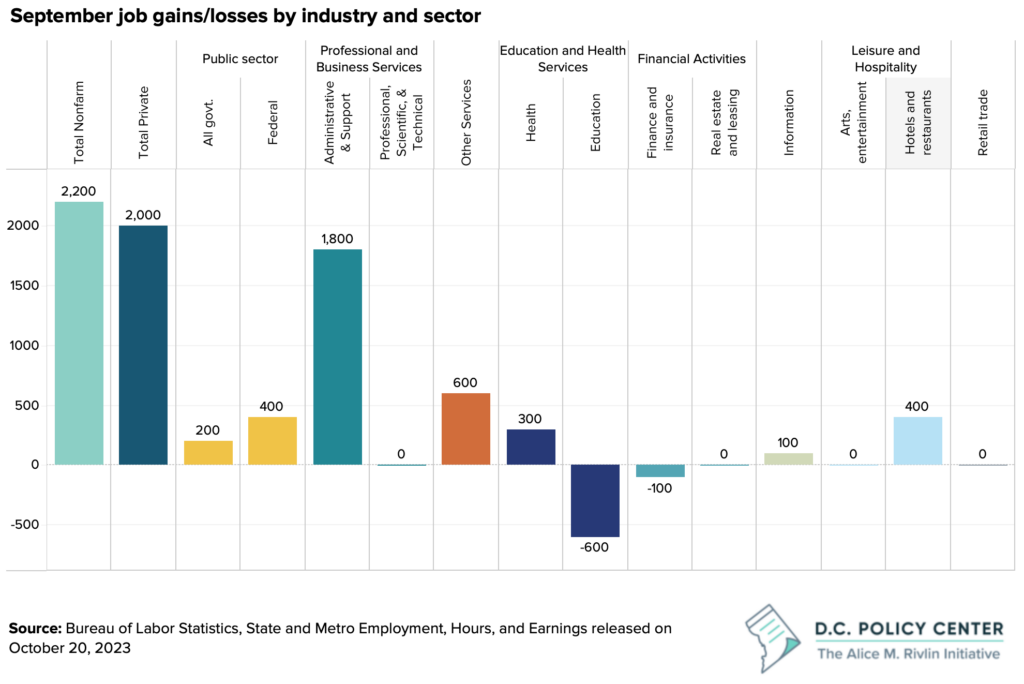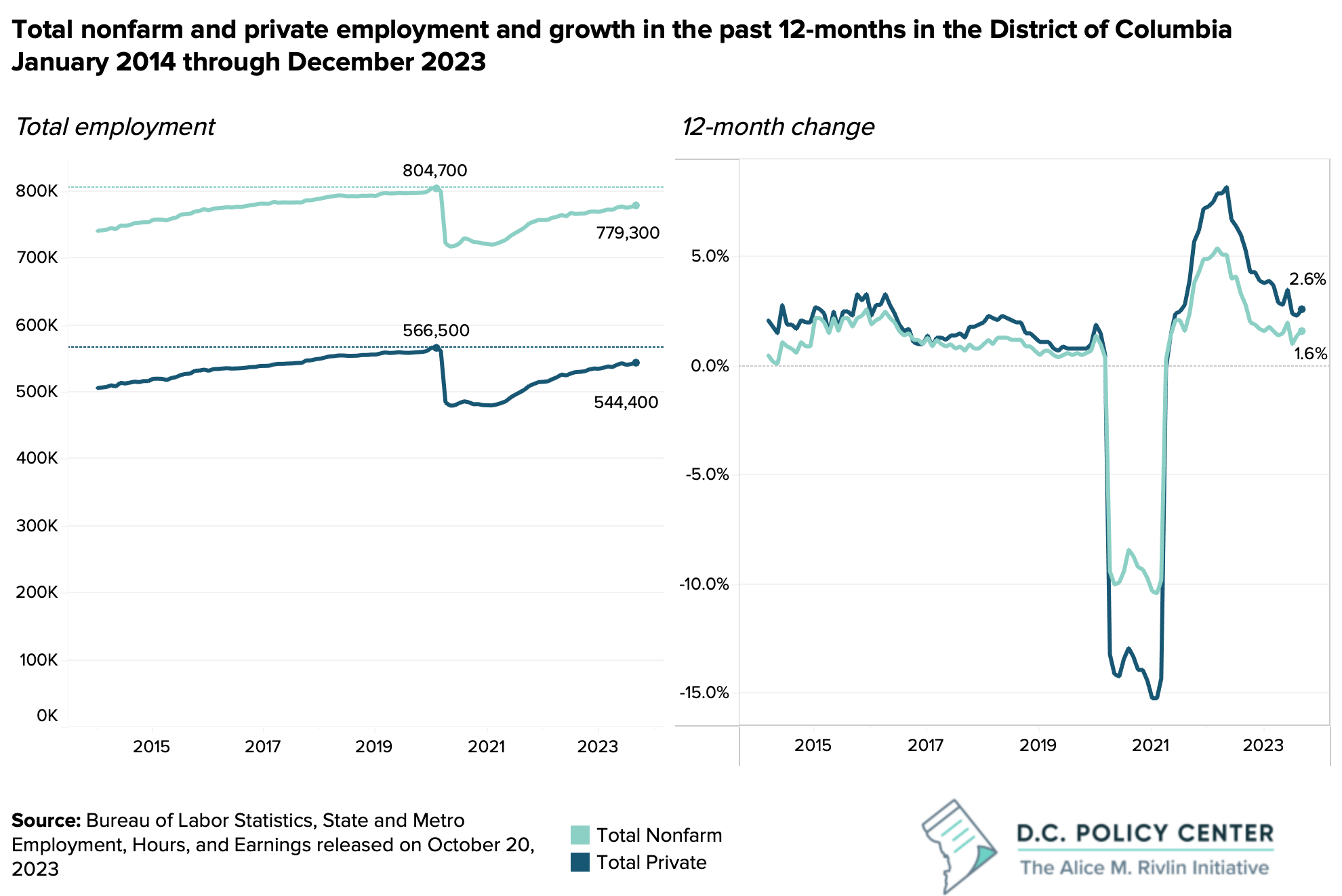This morning, the Bureau of Labor Statistics (BLS) released the preliminary data for September employment. According to the data, the District added 2,190 jobs, bringing total nonfarm employment in the city (all employees in the city, regardless of their residence, reported by employer location) to 779,300. In the last 12 months, total nonfarm employment grew by 1.6 percent, which is above the pre-pandemic trend. Nearly all the employment growth in September was driven by the private sector, which added 2,000 jobs.
The city is still lagging pre-pandemic levels for both nonfarm and private sector employment. And if employment grows at a rate similar to what we experienced in September, we will not catch up with pre-pandemic high levels of nonfarm and private sector employment before September of next year. That would mean a four-and-a-half year recovery.
It is important to note that there is some uncertainty in the numbers. The employment numbers are estimates because they are developed through a sample survey of employers. As such, they are subject to sampling errors. The BLS release also identifies states with statistically significant employment growth, and this month the District did not make the list.
The largest source of private sector employment growth was the administrative and support and waste management and remediation services sector (“administrative & support” for short). This sector, which is a part of the professional and business services industry, comprises only 6 percent of total employment and 9 percent of private sector employment in the District and it has shown erratic patterns of growth in the last twelve months, with total growth evening out at zero.
Importantly, the other part of the professional and business services industry, the professional, scientific & technical services sector, which the largest employment in the District after the federal government (12,300 jobs in September) did not grow at all in September and has not grown at all in the last year.

The BLS also released data on resident employment and unemployment, which shows that unemployment in the District of Columbia increased from 4.1 percent to 5 percent from September 2022 to September 2023. And this is a statistically significant increase. While resident employment (all D.C. residents employed, regardless of where they work) increased by 2,049 in the last twelve months, resident unemployment increased even more, by 3,746. This is the result of growing labor participation, which means more DC residents are willing to work and therefore looking for jobs, perhaps in anticipation of tougher times to come.
